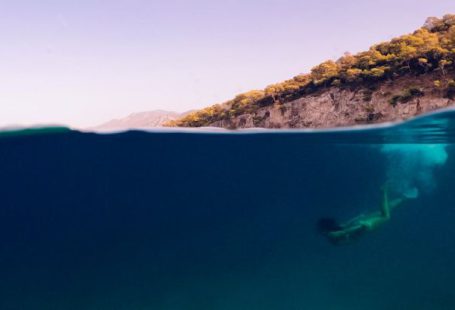When we think of marine life, majestic whales, colorful coral reefs, and playful dolphins often come to mind. However, there is a group of organisms that play a crucial role in the ocean ecosystem but often go unnoticed – plankton. These tiny organisms, consisting of phytoplankton and zooplankton, are the unsung heroes of marine life, supporting the entire ocean food web and contributing significantly to the health of our planet’s oceans.
The Role of Phytoplankton
Phytoplankton are microscopic, plant-like organisms that form the base of the marine food chain. Despite their small size, phytoplankton are responsible for producing over half of the world’s oxygen through photosynthesis. These tiny organisms absorb carbon dioxide from the atmosphere and convert it into organic carbon, playing a vital role in regulating the Earth’s climate.
Phytoplankton are also a crucial food source for a variety of marine organisms, including zooplankton, small fish, and even whales. By supporting higher trophic levels, phytoplankton ensure the survival of numerous species in the ocean ecosystem. Their abundance and distribution have a direct impact on the productivity and biodiversity of marine ecosystems worldwide.
The Importance of Zooplankton
Zooplankton, on the other hand, are tiny animals that feed on phytoplankton and other small organisms. Despite their size, zooplankton play a significant role in the ocean ecosystem by transferring energy from phytoplankton to higher trophic levels. They are an essential food source for a wide range of marine animals, including fish, seabirds, and marine mammals.
Zooplankton also contribute to nutrient cycling in the ocean. By consuming phytoplankton and other organic matter, zooplankton recycle nutrients back into the water column, fueling the growth of more phytoplankton and supporting the overall health of the marine ecosystem. Additionally, some species of zooplankton are important predators of harmful algal blooms, helping to control their population and prevent their negative impacts on marine life.
The Threats Facing Ocean Plankton
Despite their critical role in the ocean ecosystem, plankton populations are facing numerous threats due to human activities and climate change. Pollution, overfishing, and habitat destruction can all have a detrimental impact on plankton populations, disrupting the delicate balance of the marine food web. Ocean acidification, caused by the absorption of excess carbon dioxide in the ocean, can also affect plankton physiology and reduce their ability to calcify, potentially leading to a decline in their populations.
Climate change is another significant threat to ocean plankton. Rising sea temperatures, changes in ocean circulation patterns, and increased frequency of extreme weather events can all impact the distribution and abundance of plankton species. These changes can have far-reaching consequences for the entire marine ecosystem, affecting the productivity and biodiversity of our oceans.
Protecting Ocean Plankton for a Healthy Ocean Ecosystem
To ensure the health and sustainability of our oceans, it is essential to protect and conserve ocean plankton. Measures such as reducing pollution, implementing sustainable fishing practices, and establishing marine protected areas can help safeguard plankton populations and preserve the integrity of the marine food web. Additionally, addressing climate change through reducing greenhouse gas emissions and mitigating its impacts on the ocean can help protect plankton from the adverse effects of a changing environment.
By recognizing the importance of ocean plankton as the unsung heroes of marine life, we can take steps to protect these vital organisms and ensure the health and resilience of our oceans for future generations. Through conservation efforts and sustainable practices, we can help maintain the delicate balance of the marine ecosystem and support the diverse array of life that depends on plankton for survival.




